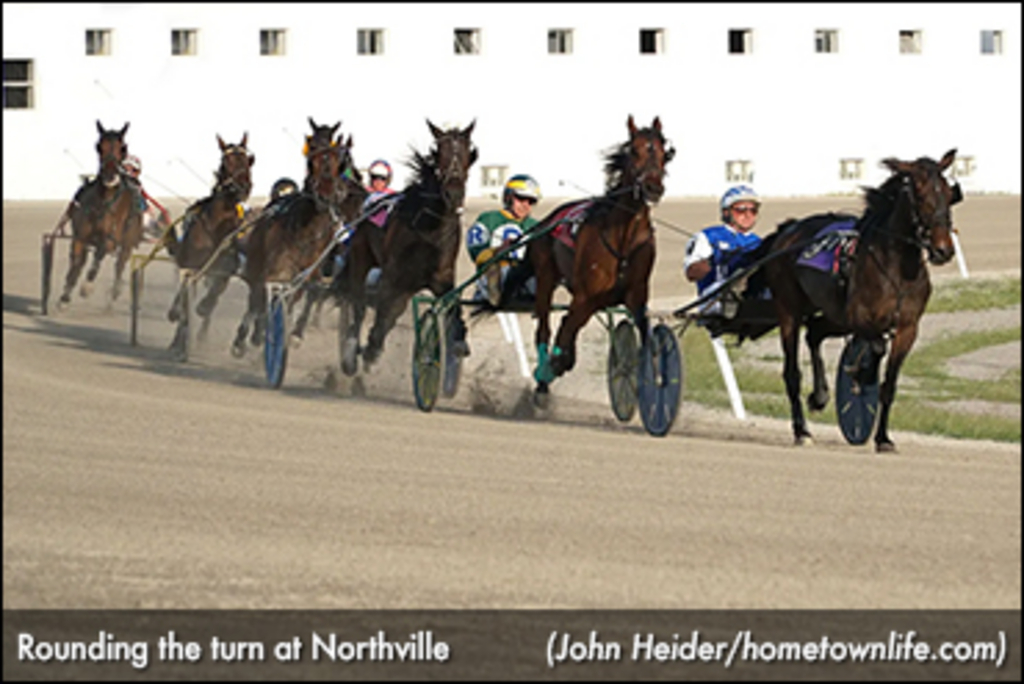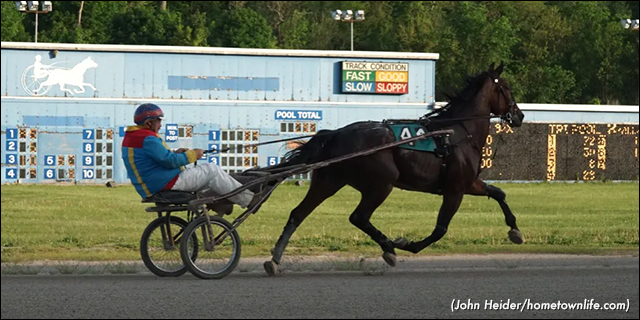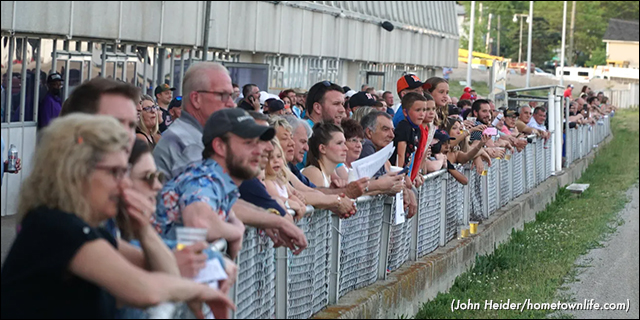
The harness racing scene in Michigan may appear down, but, make no mistake about it — it's not out.
Once a state that boasted a burgeoning harness racing industry, five of Michigan's six Standardbred racetracks have shuttered — in large part due to competition from standalone casinos and an exodus of horsepeople relocating to compete for larger purses in other states. In fact, three of them — Jackson, Sports Creek, and longtime Michigan kingpin Hazel Park — gave way within the last 12 years.
In the wake of those hurdles, Northville Downs and the horsepeople who compete there may have been against the ropes more than once, but have always stayed in the fight. One may surmise that a pandemic-induced shutdown would be the knockout blow for such a track. But, despite having been dealt two of them, the show has gone on ...
... and the teamwork between racetrack management and horsepeople to preserve the livelihoods of industry participants in the wake of its most devastating threat in recent memory brings new meaning to "Michigan proud."

Longtime Michigan horseman Kent Hess warms up a horse before a May program of racing at Northville Downs.
Mike Carlo, operations manager at Northville Downs, acknowledged a renewed sense of gratefulness when racing returned in August 2020 — five months after the suburban Detroit track was scheduled to begin their season:
"One of the nicest things I observed was that even though everybody had a lot to complain about when everything was taken away, these horsemen were so thrilled to be able to come back and say, 'Thank God we're racing again,'" he told Ed Wright of the southeast Michigan Observer & Eccentric Media. "We didn't care who the governor was, who the President was; it was just, 'I get to go back to living my life again.'"
That sentiment was echoed across the backstretch:
"When we came back the first time, there was a lot of happiness, obviously," said trainer-driver Kim Pluta, for whom the horses are his livelihood. "But at the same time, we didn't know if we'd be racing for a week, two weeks, whatever, and then get shut down again. I think that is why everybody here followed the rules so closely. We wanted to keep racing. We needed to keep racing."
And, so far, they have. Since the current meet opened on April 2, Northville has consistently carded 12-race programs with full fields every Friday and Saturday night.
"Most of the horses that run here are Michigan-born or bred, too," Carlo added, encouraged by the crowded entry box and that purse money is largely remaining in the state.
That's not to say there haven't been some changes put in place to help participants minimise the risk of COVID-19. First, the paddock has been redesigned to allow more space between horses and horsepeople — but can only accommodate three races at a time instead of five. Similarly, in the interest of keeping the backstretch limited to essential personnel, trainers have been limited to one groom for every two horses on the grounds.
On the front side of the racetrack, temperature checks and other safety measures are in place for patrons, and grandstand capacity has been capped at 1,200 for the time being — not quite the crowds of the game's halcyon days of the 1970s and 1980s, but a significant and welcome step toward normalcy compared to the empty grandstands of 2020, for management, horsepeople and fans alike.

"The second you walk in this place and look around, you remember why you wanted to come back: because you had so much fun the last time you were here," said Chelsea Chandler, a harness racing fan who was among those to revisit the track in person with her friends as restrictions started to lift.
As the world gradually returns to normalcy while still grappling with the worst pandemic in a century, Carlo believes that the races can continue to provide horsepeople their livelihood — and, for the rest of Metro Detroit, a welcome, unique diversion that marries the thrill of a winning bet with the adrenaline rush of other sporting events.
"Horse racing is such a unique form of entertainment," he said. "A lot of patrons like it better than casinos because you can bet, but it's also a sporting event unto itself."

